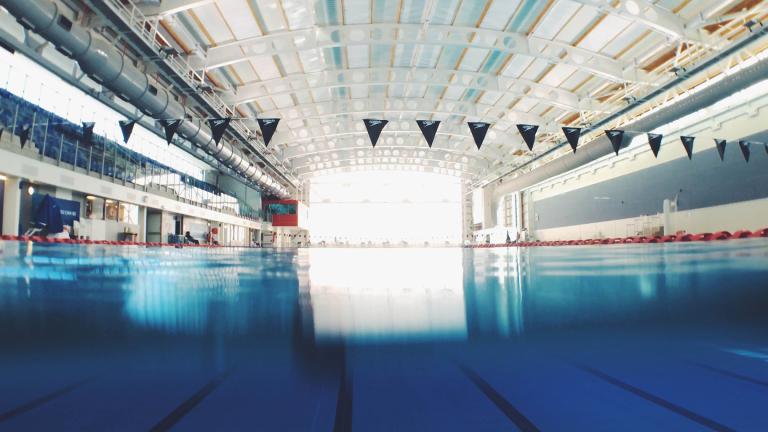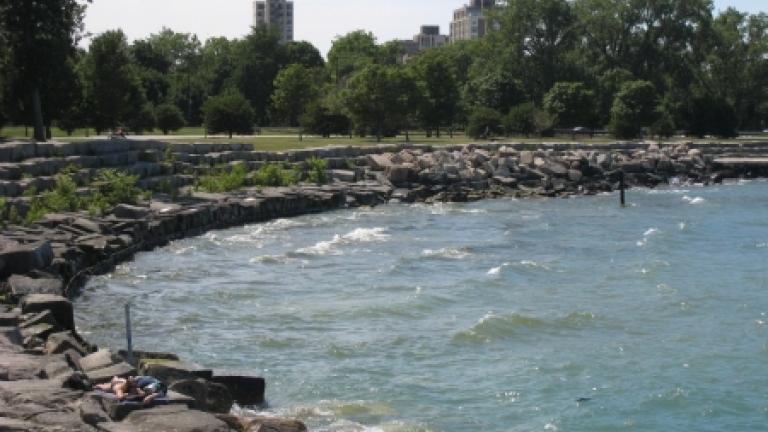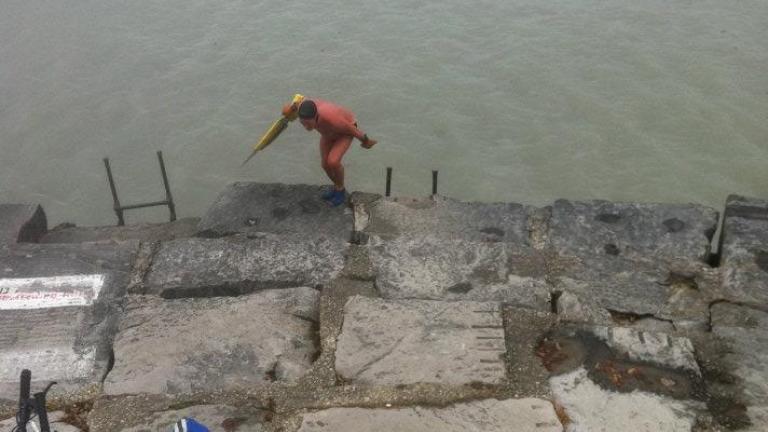We meet two men playing in the ice sheets of Lake Michigan in Hyde Park on their daily swim. Elizabeth Brackett reports on Chicago Tonight at 7:00 pm.
Chicago Tonight spoke with two local doctors about the potential risks of swimming in cold water.
 Dr. Willard Sharp, emergency medicine physician at The University of Chicago, says you have to be extremely careful while swimming in cold water because you can become hypothermic very quickly.
Dr. Willard Sharp, emergency medicine physician at The University of Chicago, says you have to be extremely careful while swimming in cold water because you can become hypothermic very quickly.
Some of the effects of hypothermia, he says, are respiratory depression, cardiac arrest and cardiac arrhythmia.
“The real danger of getting so cold is that you black out, stop breathing or your heart goes into a fatal arrhythmia,” said Dr. Sharp.
He recommends that if you do take the winter plunge, you swim with a partner.
“The second thing is to realize that no matter how trained you are, the effects will vary on an individual and it depends on how long you are in the water,” said Dr. Sharp.
He says the average temperature of Lake Michigan is 32 degrees.
“They estimate the average person will be exhausted and worn out within 15 minutes of swimming at that temperature,” said Dr. Sharp. “And within 30 to 60 minutes, it can be dangerous and put you in a life-threatening position, and death can ensue.”
Dr. Sobia Ansari, emergency medicine physician at Rush University Medical Center, says that the cold exposure can increase the effects of hypothermia. 
“Especially in Chicago with the wind chill contributing, dropping the temperature even more than what’s reported by the weather service,” she said.
Dr. Ansari says the risks vary depending on age, health and medical conditions.
“Anyone who has medical problems and taking medications are more at risk for life-threatening outcomes to cold exposure,” she said.
When you first immerse yourself in cold water, Dr. Sharp says you experience a cold shock where your heart rate goes up, as part of our fight-or-flight response.
“If you had a heart condition, that could be dangerous. The heart and brain are the most critical organs,” he said. “Early warning signs that you’re getting too cold are feeling disoriented, confused, experiencing blurred vision, or even a sense of euphoria. You can experience an irregular heartbeat and start having arrhythmias at very cold temperatures.”
Dr. Ansari says wetsuits can be protective while you’re in the water, but getting it off as soon as possible when you get out of the water to warm up is key.
“The body’s natural response is to send all your blood to your core,” she said. “Extremities, such as digits and your nose, can become more susceptible to damage because the blood supply has been diminished. You need to warm up to get blood flowing to the periphery.”
Interestingly, Dr. Sharp actually conducts research on the effects of therapeutic hypothermia in the setting of cardiac arrest.
“In medicine, we use hypothermia in different scenarios to improve functions,” said Dr. Sharp.
He says that patients who are in cardiac arrest where their heart stops but are able to get their hearts started again through CPR and other methods, can benefit from hypothermia.
“Studies have shown that by cooling the patient’s temperature down to 32 degrees Celsius for 12-24 hours in an intensive care unit, the patient can have improved neurological outcomes," said Dr. Sharp. "Patients wake up with improved function and less brain damage.”
Dr. Sharp says hypothermia is also used to treat coronary artery bypass and some surgical procedures.
“We cool patients down in those settings as well to improve neurological outcomes and cognitive functions,” he said.
Dr. Sharp says he is still in the process of researching why hypothermia causes a positive response in these cases.





